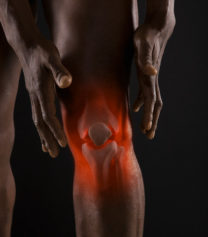Everything is yellow: cars, sidewalks and windowsills. The air is filled with pollen as trees, grass and flowers bloom in abundance. Spring marks nature’s awakening and allergy season is in full force. But common symptoms can be easily alleviated through a few easy tips.
Pollen particles are breathed into the nose and mouth causing irritation. The ears, nose, and throat are all connected, and it is not unusual to have an itch in your ear, tickle in your throat, and a sneeze in your nose. These can also be accompanied by headache, fatigue, and nasal congestion.
To lessen the impact on your health, try to follow these tips:
—Avoid touching your eyes, for whatever is on your hands could bother your eyes, which can add to nasal issues, too.
—Watch the pollen count just as you keep an eye on the weather report. When the pollen count is high, avoid outdoor exercise. People who suffer from asthma and chronic obstructive pulmonary disease (COPD/emphysema) can be particularly susceptible to changes in the pollen count. Save the grass cutting for another day and pray for a good rain to wash away some of the pollen.
—With the switch from furnace to air-conditioner as winter turns to spring, change the filters so when cool air is forced through your home, you are not aerosolizing pollen, dander, mold, and other allergens.
—Keep the windows closed even though spring’s warmth is inviting. You want to keep as much pollen out of the house as possible, for once it’s in, it’s nearly impossible to get out. Vacuum your carpets more frequently with a HEPA filter vacuum cleaner to remove as much pollen from your living space. Clean your garage, carport and/or the entrances to your home to further keep pollen outside.
—Keep the top up on the convertible, as well as the sunroof and windows closed to keep from taking pollen into your eyes, nose, and lungs at 65 mph.
—A few drops of eucalyptus oil in the shower can help clear the sinuses.
—A cool cloth over the eyes can calm irritation.
—Acupuncture has been shown to improve allergy symptoms.
Dr. Morris—If irritation persists, especially during recurring seasons, consider allergy shots. These inject a tiny amount of offending allergen to familiarize your body so it creates its own antigen.
—Neti Pots are very popular to rinse the sinuses with soothing salt water; however, there have been some cases of serious infection associated with them. Keep the Neti Pot clean as directed. Do not use tap water for the Neti Pot treatment; instead use distilled water or previously boiled water to prevent amebiasis, which can infect the brain, causing meningitis. An alternative is to use a squeeze-bulb nasal saline spray purchased from a pharmacy for nasal irrigation.
—The jury is out on the effectiveness of honey for control of seasonal allergies. Remember, people with food allergies and children under 12 months should not eat honey. Talk to your doctor prior to beginning any healthcare regime.
With care and a fresh box of tissues, you can breathe easily through allergy season.
Be well.
Sylvia E. Morris, MD, MPH, is a board-certified physician in internal medicine and holistic medicine. In addition to her clinical practice, she is a community health advocate as well as a medical consultant and commentator for media outlets such as The Weather Channel, Atlanta Fox 5 News, and CNN.com. Tell her what you think on Facebook and follow her on Twitter.
